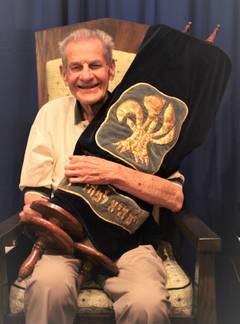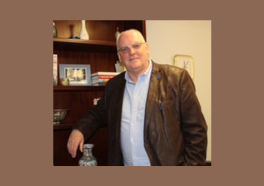- About Us
- Connect
- Learn
- Jewish Life
- Music
- Events
- Give
- Join Us
Choose Life - Yom Kippur 2022/5783
10/07/2022 04:28:56 PM
| Author | |
| Date Added | |
| Automatically create summary | |
| Summary |
Choose life, the Torah declares. I have put before you life and death, blessing and curse. Choose life, that you… may live.
Choose life that you may live? Isn’t this a strange commandment?
Even the rabbis of the Talmud took note of this, asking: Why would people even consider choosing death over life?[1] Another commentator wrote: “if someone were to say, ‘choose life in order to live,’ such an instruction would be meaningless.”[2]
“Choose life.” Deceptively simple words that are not simple at all. Words that could easily be lifted from the Torah and printed on an anti-abortion protest sign or on a leaflet given to women facing an unplanned pregnancy. For that reason alone, these words demand a closer look.
In 2019, I traveled to Montgomery, Alabama, with fifty other Reform rabbis to be part of a human rights pilgrimage.
Our first stop was the Equal Justice Initiatives’ Legacy Museum, which traces the history of slavery in our country. The museum chronicles the profound trauma and suffering caused when one group of powerful people decide that they have the right to own the bodies of other human beings.
We also visited a modest house next door to Montgomery’s only reproductive health clinic. The clinic is now closed, but in 2019, it operated one day a week. Physicians flew in from out-of-state to help patients who needed access to a safe abortion. The organization that owns the house purchased it to provide a safe and supportive place for those who traveled to the clinic.
We crowded into the living room. Some of us sat on the floor, others stood shoulder-to-shoulder in the narrow hallway. Despite the crowd, the house felt hospitable and warm, with neat baskets of children’s toys and books stored in a small room off the kitchen.
Our hostess told us how volunteers provided a space in which children could feel comfortable while their mother was at the clinic next door. The volunteers offered a bedroom for those traveling from out-of-town. Most important, they offered compassionate support to all who faced a wrenching choice.
A stocky, bearded man rose to his feet and told us how he used his body as a shield against the protesters who gathered outside the clinic. He would hold an open umbrella as he escorted frightened patients to shield them from the disturbing images on signs held by protesters. He would calmly remind the patients he escorted to ignore the screaming and the name-calling. We sat there, stunned to hear the harrowing things that people do to deny the right of others to make choices about their bodies.
Our reform movement and its rabbis have long supported the right to a safe and legal abortion, a position squarely in accord with traditional Jewish law. Even in the time of the Torah, our ancestors did not consider the life of a fetus to have the same value as the life of a mother.
Children are treasured in our tradition. Yet our rabbis taught that the mitzvah – the commandment – to “be fruitful and multiply” is binding only on men, not on women. Jewish law does not mandate that a woman risk her life with pregnancy and childbirth. This position puts us squarely at odds with those in our country who would mandate otherwise.
When we visited the house in Montgomery, access to a safe medical abortion was still legal in every state. But despite that fact, those facing an unwanted pregnancy often had a difficult time obtaining the medical care they needed.
The number of clinics has diminished over the years. Providers of reproductive health services have been harassed, and anti-choice lawmakers have pushed legislation to make it more difficult for clinics to operate. Well before the Supreme Court overturned Roe versus Wade last June, many states had already restricted access to a safe abortion.
Many of you likely know someone who has made the choice to end a pregnancy. Maybe you have made that choice yourself. My best friend in high school faced that decision, and she graciously gave me permission to tell her story.
In our senior year of high school, my friend fell madly in love, and became pregnant. As an 18-year-old without financial or emotional resources to raise a child, my friend made an appointment for an abortion. She drove to a town about an hour away. She checked into the clinic, put on a paper gown and readied herself.
But she did not go through with the abortion. At that moment, she changed her mind. Eight months later, she gave birth to her daughter.
My friend and I were a study in contrasts. She lived in a cramped duplex in the shadow of a massive concrete overpass in Seattle, while I lived in a comfortable dorm on a wooded campus. She struggled to balance childcare with her class schedule, and to do her homework when her brain was foggy from lack of sleep, while I led the typical life of an undergraduate, studying whenever and wherever I wanted. My friend labored to support her child, while I was responsible only for myself.
Decades later, she and I, both middle-aged, our children grown, met at the Seattle waterfront and talked about our lives. My friend told me she was empowered by her choice to become a mother. In her words: “From the moment pain started in labor, I could lean on that internally and say, it’s okay, I chose this. And it gave me the freedom to figure out the impossible task of forever being so much younger than other parents, especially when things were so hard…I found peace remembering that this was my choice, my clear choice in the face of two other options.”
In her choice, my friend found her strength.
Choose life.
It is our ability to choose that gives shape to our lives. Each day we make choices, large and small, based on our values, circumstances and sensibilities. Even our inevitable missteps are shaped by individual choice.
A medieval commentator known as Radak noted that “God gives (us) this choice, and it is up to (us) to choose (our) path.” Rabbi Alan Lew extended this thought further. He wrote, “The Torah clearly has the idea that every human being needs to have absolute freedom of choice.”[3]
It is the word “choose” that is key to the Torah’s command to “choose life.” We are meant to choose. We are not created to be passive, to let the days go by and let things just happen to us. The choices that we make every day define the path that we walk. And it is our ability to choose that gives us the strength to face the struggles we will most certainly encounter on that path, as my friend discovered at such a young age.
This is what it means to “choose life.” It means to draw deep into ourselves to shape our lives – lives that are unique to each one of us. This idea is rooted in radical simplicity. At its heart is the dignity of the self. Yom Kippur calls to each of us: Choose your path. Choose your path and walk on that path with clarity and with intention.
Thu, April 24 2025
26 Nisan 5785
Temple israel Happenings
-
Thursday ,
AprApril 24 , 2025 County-Wide Yom HaShoah Commemoration
County-Wide Yom HaShoah Commemoration
Thursday, Apr 24th 12:00pm to 1:00pm
County-Wide Yom HaShoah Commemoration at the Garden of Remembrance, 119 Martine Avenue in White Plains. Temple Israel's rescued Holocaust Torah scroll will be part of the procession of scrolls from Westchester county, and Cantor Hayley Kobilinsky will participate in the program. -
Tuesday ,
AprApril 29 , 2025 Sisterhood Book Group
Sisterhood Book Group
Tuesday, Apr 29th 6:00pm to 8:30pm
NEW DATE! We will be discussing the book "The Frederick Sisters Are Living the Dream" by Jeannie Zusy in person at a congregants' home. The author will be joining us for the discussion. We will have a Pot Luck Dinner to start -
Wednesday ,
AprApril 30 , 2025 Holocaust Education Today: Challenges and Limits by Dr. Werner Steger
Holocaust Education Today: Challenges and Limits by Dr. Werner Steger
Wednesday, Apr 30th 6:00pm to 7:30pm
Dr. Steger serves as the endowed chair for the Greenspan-Handel Trust for Holocaust and Genocide Studies. -
Saturday ,
MayMay 3 , 2025 Midnight Run
Midnight Run
Shabbat, May 3rd 1:00pm to 4:00pm
Volunteers needed. The Midnight Run is a volunteer organization whose goal is to come together as a community in order to feed the homeless of New York City. They coordinate more than 1,000 relief missions per year with volunteers from churches, synagogues, schools and other civic groups to deliver food, clothing, blankets and personal care items to the homeless poor on the streets of New York City.
Events
Today's Calendar
| Yom HaShoah |
: 12:00pm |
: 7:00pm |
Friday Night
: 7:00pm |
Shabbat Day
: 9:30am |
Upcoming Programs & Events
Apr 24 |
Apr 24 |
Apr 29 |
Apr 30 |
May 2 |
This week's Torah portion is Parashat Sh'mini
| Shabbat, Apr 26 |
Yom HaShoah
| Thursday, Apr 24 |




